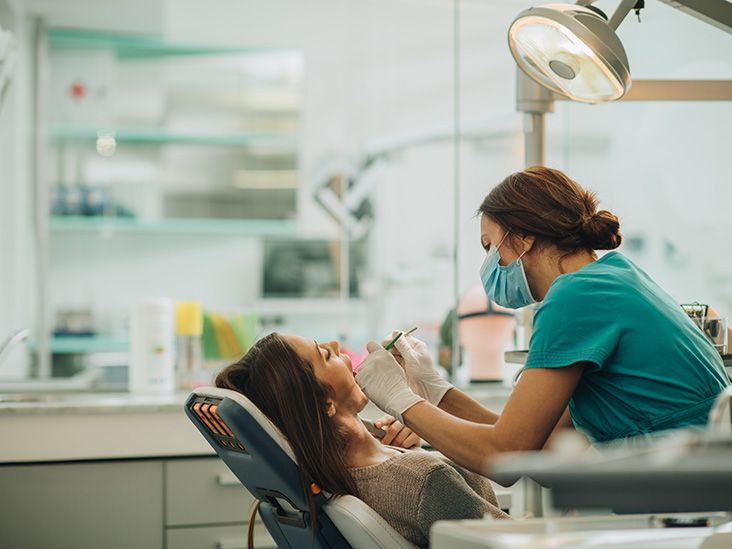The Secret to a Perfect Smile: Checking Out Veneers in Washington DC
The Secret to a Perfect Smile: Checking Out Veneers in Washington DC
Blog Article
Common Concerns About Oral Veneers Answered
Oral veneers have become an increasingly desired choice for those seeking to boost their smiles, yet several people continue to be unsure regarding numerous elements of their use. Secret inquiries commonly develop regarding the application process, long life, and potential risks connected with these cosmetic enhancements. The difference between porcelain and composite veneers can substantially influence one's selection. As we explore these usual questions, it becomes vital to consider not only the benefits yet also the implications of choosing dental veneers in search of an extra confident appearance. What variables should one weigh before making such a choice?
What Are Dental Veneers?
Oral veneers are thin, custom-made shells crafted from porcelain or composite material that are designed to cover the front surface of teeth. These dental prosthetics offer both practical and aesthetic functions, giving a solution for various dental blemishes, consisting of staining, chips, spaces, and misalignment. By sticking to the teeth, veneers can substantially enhance the total look of a smile, developing a more eye-catching and uniform look.
Porcelain veneers are particularly favored for their natural clarity and tarnish resistance, making them a suitable selection for individuals seeking lasting outcomes. On the other hand, composite material veneers are generally less expensive and can be applied in a single browse through, yet they might not use the exact same sturdiness as porcelain alternatives.
The decision to choose dental veneers usually comes from a desire for aesthetic enhancement, yet individuals ought to also take into consideration aspects such as the longevity of the material, upkeep demands, and the potential demand for tooth reduction (Low Cost Veneers). Inevitably, dental veneers represent a flexible and reliable remedy for accomplishing a radiant smile, dealing with specific aesthetic needs while advertising confidence and self-confidence
How Are Veneers Applied?
The application procedure for veneers needs cautious preparation and precision to make certain optimal outcomes. The treatment generally begins with an extensive examination, where the dentist examines the client's oral health, discusses desired results, and establishes the appropriate sort of veneers, whether porcelain or composite material.
Once the therapy plan is developed, the dental professional prepares the teeth by getting rid of a thin layer of enamel, normally about 0.5 mm to 1 mm, to fit the veneer. This step is critical as it ensures a proper fit and avoids the veneers from showing up bulky - Veneers. After prep work, impressions of the teeth are required to create custom veneers that match the person's distinct dental structure and aesthetic choices
While the long-term veneers are being produced in an oral laboratory, short-term veneers may be placed to safeguard the ready teeth. When the irreversible veneers prepare, the dentist will thoroughly bond them to the teeth utilizing a solid dental adhesive. Final modifications are made to ensure correct alignment and bite, followed by polishing for a natural look. The process culminates in a follow-up appointment to monitor the veneers' fit and the individual's fulfillment with their new smile.
What Are the Perks?

Moreover, veneers are understood for their resilience and resistance to staining compared to all-natural teeth. Made from high-quality materials such as porcelain or composite resin, they can keep their appearance for many years with appropriate care. This long life makes them a sensible investment in one's oral look.
In enhancement to visual enhancements, veneers can additionally add to boosted dental wellness. By covering damaged or compromised teeth, they can provide added support and defense, helping to prevent more decay or deterioration. This protective facet can minimize the demand for a lot more considerable oral procedures in the future.

The Length Of Time Do They Last?
With correct care and maintenance, oral veneers can last anywhere from 10 to 15 years, making them a long-lasting solution for improving one's smile. The longevity of veneers mostly depends on the material used, the top quality of the initial positioning, and the person's adherence to dental health methods.
Porcelain veneers are recognized for their resilience and resistance to discoloration, normally lasting closer to the 15-year mark when cared for appropriately. Compound veneers, while extra affordable, may call for substitute sooner, commonly within 5 to one decade as a result of their vulnerability to use and staining.

In addition, putting on a mouthguard throughout sports official source or nighttime can supply extra security. Eventually, while veneers use a significant visual improvement, their long life is significantly influenced by the commitment to correct dental care and routine assessments with an oral specialist.
Are There Any Threats?
Thinking about the transformative impacts of oral veneers, it is very important to acknowledge the prospective dangers connected with their application. While veneers can enhance the appearance of teeth, the procedure includes the removal of a thin layer of enamel, which can enhance tooth sensitivity and vulnerability to degeneration.
One substantial threat is the opportunity of improper positioning or fitting, bring about pain, bite imbalance, and even damage to the underlying tooth structure. In addition, if the veneers are not maintained properly, they can become blemished or cracked gradually, demanding substitute.
People might also experience allergies to the materials used in the veneers, specifically if they have level of sensitivities to certain oral compounds. While veneers are sturdy, they are not indestructible; extreme force from clenching or grinding can lead to cracks.
It is important for individuals to talk to a certified oral expert to review their specific threats and to follow aftercare instructions diligently. By recognizing these threats, patients can make enlightened choices regarding their dental veneer therapy and make sure the longevity and success of their enhancements.
Verdict
In summary, dental veneers stand for a beneficial cosmetic service for boosting smiles, with factors to consider concerning their application, advantages, long life, and associated risks. Their effectiveness is influenced by factors such as the option of product, with porcelain Read More Here offering superior sturdiness compared to composite options. Correct care and maintenance are vital to optimize the life-span of veneers. Ultimately, informed decision-making concerning oral veneers can result in satisfactory visual results and enhanced dental health.
Dental veneers are slim, personalized coverings crafted from porcelain or composite material that are made to cover the front surface of teeth. After preparation, impressions of the teeth are taken to create personalized veneers that match the individual's distinct dental framework and aesthetic preferences.
While the permanent veneers are being produced in a dental research laboratory, short-term veneers may be placed to protect the prepared teeth. As soon as the long-term veneers are prepared, the dental professional will very carefully bond them to the teeth making use of a solid oral adhesive. Ultimately, educated decision-making regarding dental veneers can lead to satisfying visual outcomes and improved dental health and wellness.
Report this page